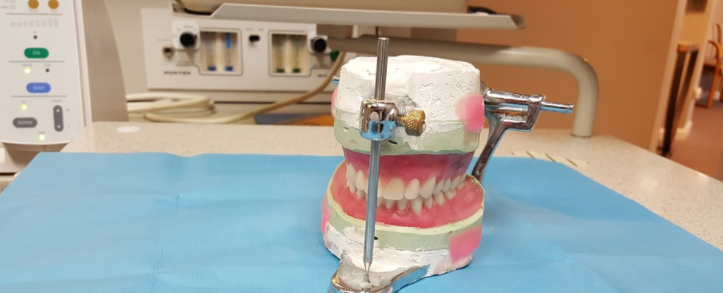Are you feeling sluggish, unfocused, or just not quite yourself? The answer may lie in your pantry. Many of us underestimate the profound impact that our diet has on our overall well-being. Processed foods are often convenient and tasty, but they can take a toll on physical and mental health. As we journey through life striving for self-improvement, it’s essential to recognize how what we eat plays a crucial role in fueling our ambitions. Information from https://rightnowpath.net/self-improvement-techniques/why-starting-a-self-improvement-plan-is-challenging-key-barriers-explained/ can help you navigate some of the expected challenges on your self-improvement journey. By cutting out processed foods and embracing whole-food-based options, you might find yourself looking better and also feeling more energized and motivated than ever before. Let’s explore this transformative pathway together.
The Link Between Diet and Mental Health
What we eat does more than nourish our bodies; it significantly impacts our minds. Numerous studies reveal a strong connection between diet and mental health. When nutrients are lacking, mood swings and anxiety can become prevalent. Processed foods often contain high levels of sugar, unhealthy fats, and additives that may trigger inflammation in the brain. This inflammation is linked to various mental health issues, including depression and cognitive decline.
Conversely, a whole-foods-based diet rich in fruits, vegetables, lean proteins, and healthy fats can promote better brain function. These foods provide essential vitamins and minerals that support neurotransmitter production—key players in regulating mood. As you make changes to your diet, be prepared for a refreshing shift in your mental landscape.
Physical Benefits of Cutting Out Processed Foods

Cutting out processed foods can lead to significant physical benefits. Many people experience improved energy levels almost immediately. Whole foods, rich in nutrients, fuel the body more effectively than their processed counterparts. Weight management is another positive change. Processed foods often contain hidden sugars and unhealthy fats that contribute to weight gain. By choosing whole foods, you’re likely to consume fewer empty calories. Digestive health also sees improvement when eliminating processed options. Natural fibers found in fruits, vegetables, and grains support a healthier gut microbiome. This can result in better digestion and regularity.
Mental Benefits of a Whole-Food Diet

A whole-foods-based diet can bring remarkable clarity to your mind. Eating fresh fruits, vegetables, and lean proteins fuels the brain with essential nutrients. This nourishment promotes optimal cognitive function. Eliminating processed foods reduces sugar spikes and crashes. Such fluctuations often lead to irritability and mood swings. With a stable energy source from whole foods, you may feel calmer and more focused throughout the day. Additionally, embracing whole foods fosters mindfulness around eating habits. Preparing meals from scratch encourages a deeper connection with what you consume, leading to increased satisfaction and awareness of hunger cues. It’s not just about food; it’s about nurturing your mental state through thoughtful choices.
Taking control of your health through dietary changes can be a transformative journey. By cutting out processed foods, you open the door to numerous benefits that extend beyond physical appearance. Embracing whole foods nourishes not only your body but also your mind. Making conscious decisions about what you eat paves the way for enhanced self-improvement on multiple fronts. Health is a multifaceted journey where diet plays a crucial role in shaping how we feel physically, mentally, and emotionally.…








 Holistic approaches to addiction recovery view individuals as whole beings, recognizing that addiction affects more than just physical cravings. These approaches aim to address the underlying causes of addiction by considering the interplay between various aspects of a person’s life, including their physical well-being, mental state, emotional health, social connections, and spiritual beliefs.
Holistic approaches to addiction recovery view individuals as whole beings, recognizing that addiction affects more than just physical cravings. These approaches aim to address the underlying causes of addiction by considering the interplay between various aspects of a person’s life, including their physical well-being, mental state, emotional health, social connections, and spiritual beliefs.



 Meal plans that are full of healthy, whole foods are going to be much better for you than those that are not. Processed foods, sugary drinks, and other unhealthy choices can sabotage your efforts to get in shape.
Meal plans that are full of healthy, whole foods are going to be much better for you than those that are not. Processed foods, sugary drinks, and other unhealthy choices can sabotage your efforts to get in shape. If you are someone who struggles with making healthy choices, meal planning can be a godsend. When you have a plan, you don’t have to waste time and energy trying to decide what to eat – you can follow the plan and know that you are making good choices for your body. This can help to reduce decision fatigue and make it easier to stick to your goals.
If you are someone who struggles with making healthy choices, meal planning can be a godsend. When you have a plan, you don’t have to waste time and energy trying to decide what to eat – you can follow the plan and know that you are making good choices for your body. This can help to reduce decision fatigue and make it easier to stick to your goals. another great benefit of healthy meal plans is that they offer a lot of variety. This can be helpful if you get bored quickly or find it hard to stick to the same routine. With a meal plan, you can mix and match different recipes to keep things interesting.
another great benefit of healthy meal plans is that they offer a lot of variety. This can be helpful if you get bored quickly or find it hard to stick to the same routine. With a meal plan, you can mix and match different recipes to keep things interesting.
 One way that hospitals can improve healthcare access is by collaborating with local clinics and health centres. By working together, these organizations can provide a higher level of care for their patients. Additionally, they can share resources and knowledge to meet the community’s needs better. For example, hospital staff could provide training to clinic staff on how to use new medical equipment. Clinic staff could also help hospital staff understand the community’s needs. By working together, these organizations can improve healthcare access for all patients.
One way that hospitals can improve healthcare access is by collaborating with local clinics and health centres. By working together, these organizations can provide a higher level of care for their patients. Additionally, they can share resources and knowledge to meet the community’s needs better. For example, hospital staff could provide training to clinic staff on how to use new medical equipment. Clinic staff could also help hospital staff understand the community’s needs. By working together, these organizations can improve healthcare access for all patients. Hospitals can also improve healthcare access by offering more services to patients. Many patients need access to multiple services, but they may not be able to find all of the resources they need in one place.
Hospitals can also improve healthcare access by offering more services to patients. Many patients need access to multiple services, but they may not be able to find all of the resources they need in one place.


 As one of the cases this disorder is because the partner not being aware of her sexual needs and techniques, she may not be willing to accept the man, who is generally more aggressive.
As one of the cases this disorder is because the partner not being aware of her sexual needs and techniques, she may not be willing to accept the man, who is generally more aggressive. To prevent this condition from going worse, some people might be considered medical treatment. They might be going to the hospital and get some guidance or therapy regarding this disorder.
To prevent this condition from going worse, some people might be considered medical treatment. They might be going to the hospital and get some guidance or therapy regarding this disorder.

 Reading could allow you to rejuvenate when you’re swamped with work. It could beneficial for people who love reading. They could spend more time reading books and other stuff. You may have to take a break a little earlier than expected, and that’s okay as long as it allows you to work better at your job and keep your mind clear to continue living and working again. Taking a novel to immerse yourself in during breaks can also relieve anxiety and improve cognitive function. Therefore, you could enhance your focus and mental health significantly.
Reading could allow you to rejuvenate when you’re swamped with work. It could beneficial for people who love reading. They could spend more time reading books and other stuff. You may have to take a break a little earlier than expected, and that’s okay as long as it allows you to work better at your job and keep your mind clear to continue living and working again. Taking a novel to immerse yourself in during breaks can also relieve anxiety and improve cognitive function. Therefore, you could enhance your focus and mental health significantly.
 There are many dental care mistakes that women from all walks of life make every day.
There are many dental care mistakes that women from all walks of life make every day.  Both men and women should not include an excessive amount of caffeine in their diet. There are instances when people have unbearable headaches that are not resolved by doctors. In these cases, individuals need to explore the problem with their dentists. Studies show that there is a link between migraines and dentistry. There may be a problem with the teeth that causes the constant attacks. Many men and women tend to neglect to replace their molars, leading to harmful results. Therefore, it is essential to complete the cavity after tooth extraction. Many people underestimate the ease of teeth with current treatment options. The treatment process itself can take longer depending on the severity of the case.
Both men and women should not include an excessive amount of caffeine in their diet. There are instances when people have unbearable headaches that are not resolved by doctors. In these cases, individuals need to explore the problem with their dentists. Studies show that there is a link between migraines and dentistry. There may be a problem with the teeth that causes the constant attacks. Many men and women tend to neglect to replace their molars, leading to harmful results. Therefore, it is essential to complete the cavity after tooth extraction. Many people underestimate the ease of teeth with current treatment options. The treatment process itself can take longer depending on the severity of the case. There is a significant difference between a regular dentist or perhaps a specialist and a dentist—the mainly former deal with treating or preventing oral disease and other dental problems. The latter offer is called optional treatment and solutions for improving their teeth, smile, or mouth. You can say it is similar to the distinction between a plastic surgeon who works to damage physical appearance and a cosmetic surgeon whose goal is to improve the human body and head’s aesthetics.
There is a significant difference between a regular dentist or perhaps a specialist and a dentist—the mainly former deal with treating or preventing oral disease and other dental problems. The latter offer is called optional treatment and solutions for improving their teeth, smile, or mouth. You can say it is similar to the distinction between a plastic surgeon who works to damage physical appearance and a cosmetic surgeon whose goal is to improve the human body and head’s aesthetics.

 Viagra can also be called sildenafil citrate and is a drug that treats erectile dysfunction and pulmonary hypertension.
Viagra can also be called sildenafil citrate and is a drug that treats erectile dysfunction and pulmonary hypertension.  Suppose you are interested in remedying your sexual inadequacies soon and looking for suitable products for the current market. In that case, chances are you have heard about VigRx Plus from your friends or read about it on the internet. Since there are far more positive testimonials about VigRx Plus than unfavorable opinions, you are probably thinking about buying VigRx Plus as well. As with any other medication, before you purchase VigRx Plus, you should be completely sure of its effectiveness, side effects, drug reactions, the onset of action, and even more. On the internet, it is possible to discover product number information that can provide you with an overview before purchasing VigRx Plus. There are also discussions on the topic where real users leave their opinions and experiences.
Suppose you are interested in remedying your sexual inadequacies soon and looking for suitable products for the current market. In that case, chances are you have heard about VigRx Plus from your friends or read about it on the internet. Since there are far more positive testimonials about VigRx Plus than unfavorable opinions, you are probably thinking about buying VigRx Plus as well. As with any other medication, before you purchase VigRx Plus, you should be completely sure of its effectiveness, side effects, drug reactions, the onset of action, and even more. On the internet, it is possible to discover product number information that can provide you with an overview before purchasing VigRx Plus. There are also discussions on the topic where real users leave their opinions and experiences.



 Patients who are considering a surgical procedure that may require follow-up care are especially encouraged to seek out medical professionals who use telemedicine. Real-time access to a primary care physician.
Patients who are considering a surgical procedure that may require follow-up care are especially encouraged to seek out medical professionals who use telemedicine. Real-time access to a primary care physician.
 In addition, parents should be aware of how many other doctors, nurses, and medical staff are prone to making small mistakes that could contribute to newborn health problems. It is a great idea to contact a childbirth injury attorney.
In addition, parents should be aware of how many other doctors, nurses, and medical staff are prone to making small mistakes that could contribute to newborn health problems. It is a great idea to contact a childbirth injury attorney. Ultimately, it is crucial for parents to monitor their newborn after birth, as mechanical trauma or lack of oxygen can occur due to inadequate health care, leading to more serious problems that result long-term symptoms.
Ultimately, it is crucial for parents to monitor their newborn after birth, as mechanical trauma or lack of oxygen can occur due to inadequate health care, leading to more serious problems that result long-term symptoms.

 It is usually wise to practice for at least two hours a day to get the best results. Don’t get complacent and stop checking the latest trends or updates from yoga and other holistic wellness clinics. You will be able to connect and send your message if the nature of a story guides you.
It is usually wise to practice for at least two hours a day to get the best results. Don’t get complacent and stop checking the latest trends or updates from yoga and other holistic wellness clinics. You will be able to connect and send your message if the nature of a story guides you. Develop your unique exercise because yoga is much more practical than you think. Know the concepts and design your essence and practice, along with your skills and experience. Don’t be just an imitates.
Develop your unique exercise because yoga is much more practical than you think. Know the concepts and design your essence and practice, along with your skills and experience. Don’t be just an imitates.


 It has been a subject from the information, as ongoing medication use is hitting new heights for reasons unknown. Whatever the manners of thinking, it leaves catastrophic results on the individual and the patient’s families.
It has been a subject from the information, as ongoing medication use is hitting new heights for reasons unknown. Whatever the manners of thinking, it leaves catastrophic results on the individual and the patient’s families.  Besides, it prevents related seizures identified with liver irritation. (Vilela, 2015) CBD oil has, in like manner, diminished the length of the medication in mice. From the critters bound with unequivocal meds, it had been demonstrated that the engineered extended glutamate release, while CBD oil blend has the contrary effect. Glutamate is an amazing neurotransmitter that is conveyed by the cerebrum’s neural cells.
Besides, it prevents related seizures identified with liver irritation. (Vilela, 2015) CBD oil has, in like manner, diminished the length of the medication in mice. From the critters bound with unequivocal meds, it had been demonstrated that the engineered extended glutamate release, while CBD oil blend has the contrary effect. Glutamate is an amazing neurotransmitter that is conveyed by the cerebrum’s neural cells.
